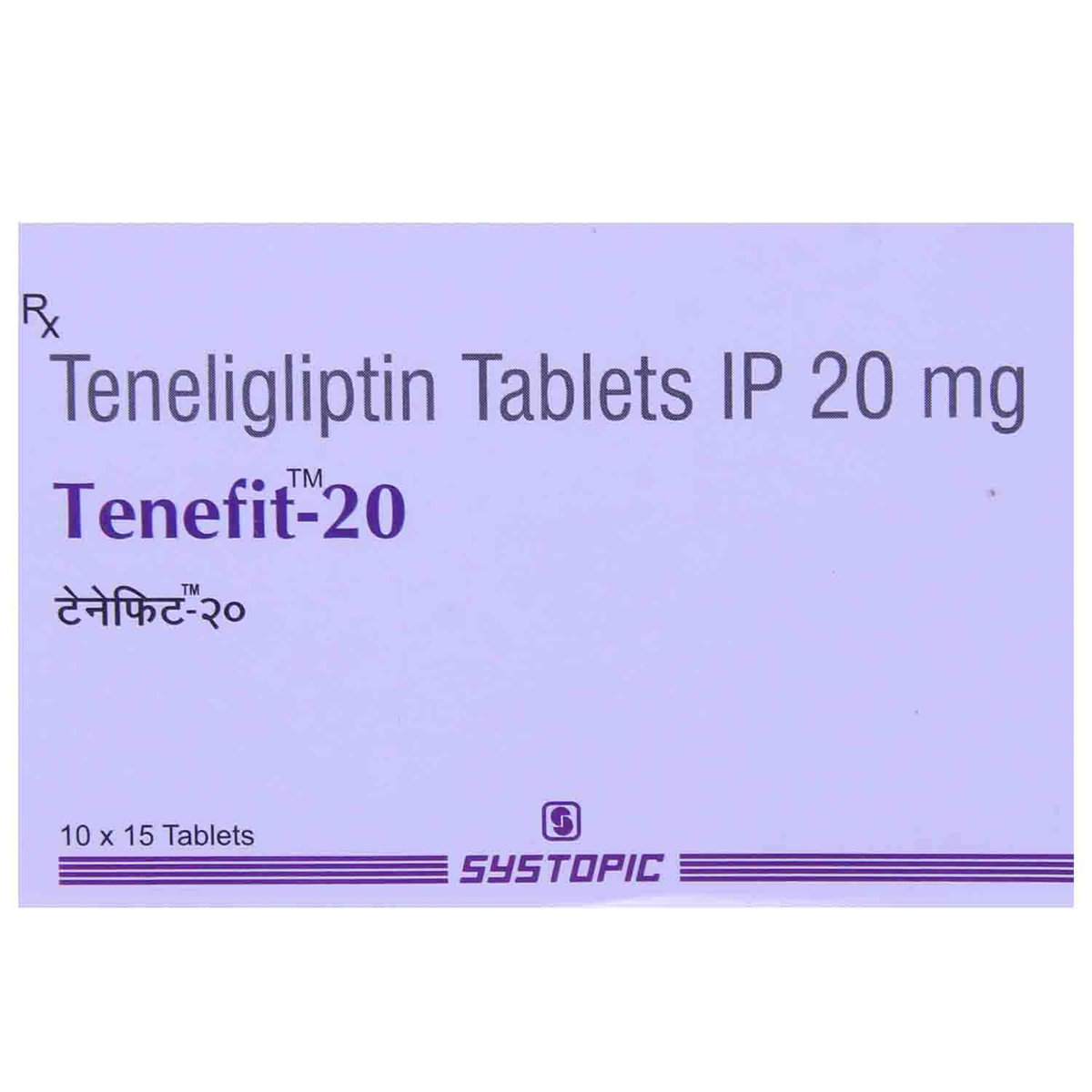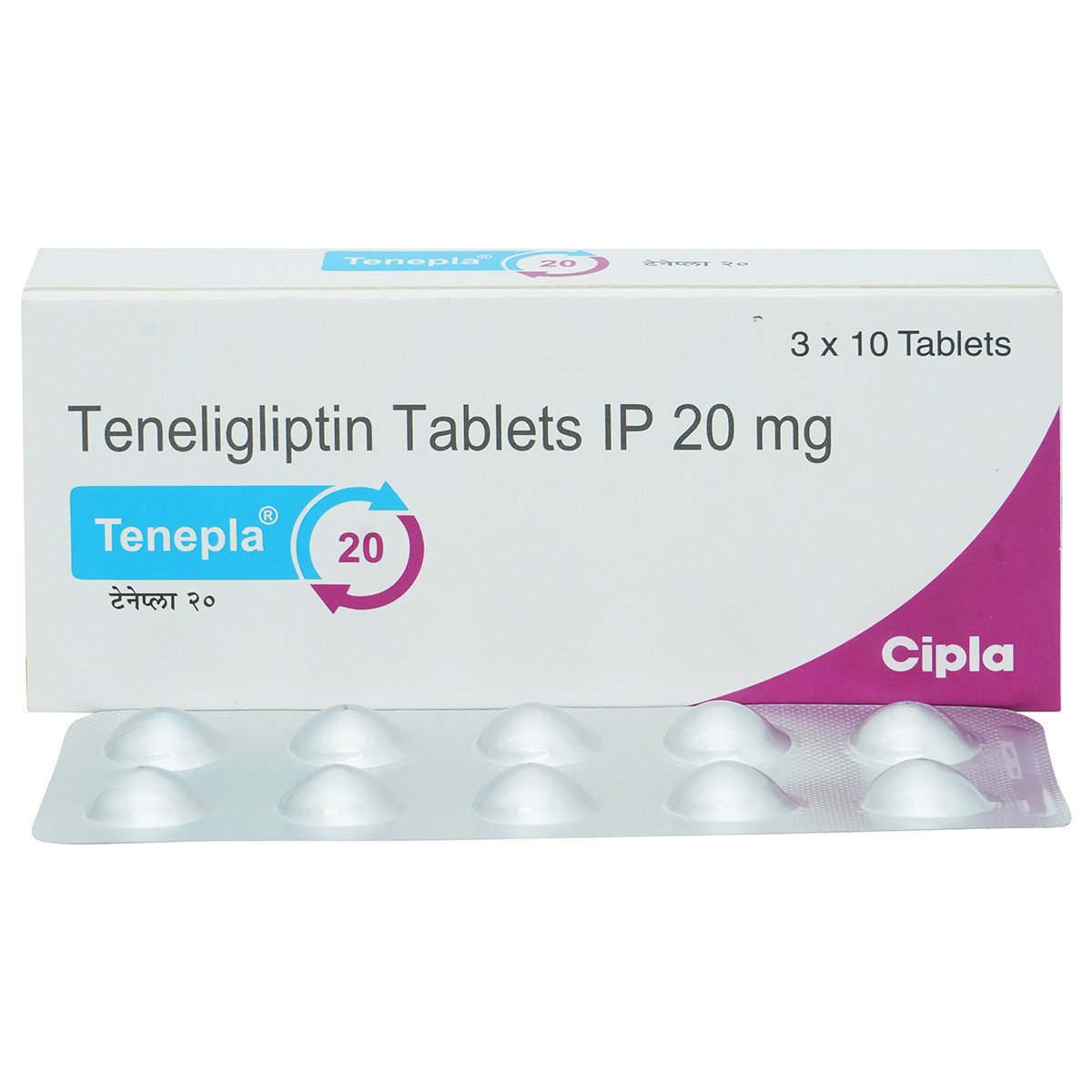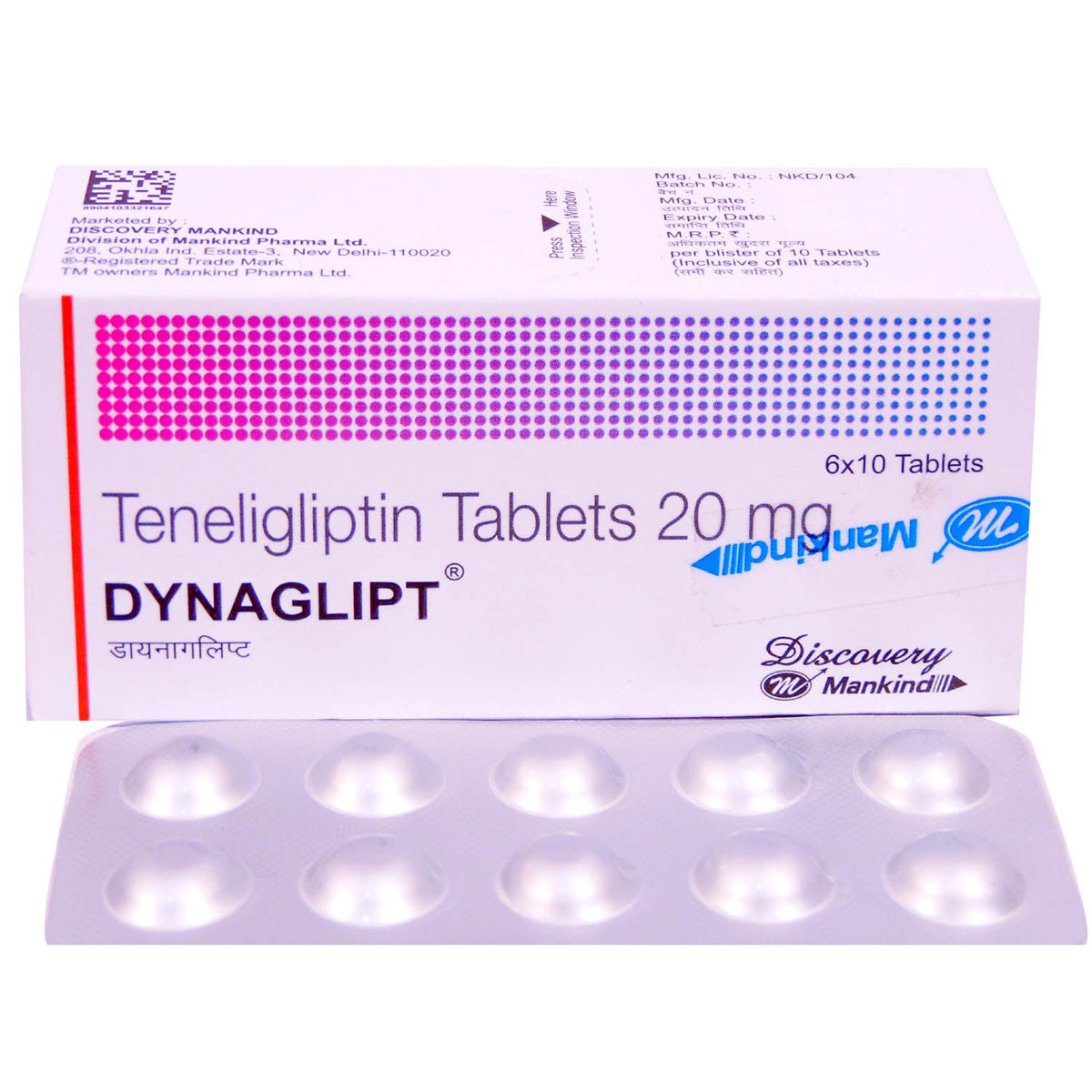Met Janisha Tablet
MRP ₹109
(Inclusive of all Taxes)
₹16.4 Cashback (15%)
Know Your Delivery Time
Provide Delivery Location

Secure Payment

India's Most Trusted Pharmacy

Genuine Products
Composition :
Manufacturer/Marketer :
Consume Type :
Expires on or after :
Return Policy :
About Met Janisha Tablet
Met Janisha Tablet belongs to the category of medicines called anti-diabetic, primarily used to treat type 2 diabetes, as an adjunct to diet and exercise. It is used alone or in combination with other drugs to lower blood sugar levels.
Met Janisha Tablet contains Teneligliptin, which belongs to the class of dipeptidyl peptidase-4 (DPP-4) inhibitors. It works by promoting insulin secretion from the pancreas and regulating blood sugar post-meal by controlling glucagon secretion.
Met Janisha Tablet may cause side effects such as headache, low blood glucose levels, upper respiratory tract infection, and nasopharyngitis (infection of the nose and throat with a common cold). Talk to your doctor if any of these side effects persist or worsen.
Do not take Met Janisha Tablet if you are allergic to any of its components. Consult your doctor if you are pregnant or breastfeeding. Keep your doctor informed about your medical conditions and medications to prevent any potential interactions.
Uses of Met Janisha Tablet
Met Janisha Tablet is used to lower blood sugar levels in Type 2 Diabetes Mellitus. The detailed uses of Met Janisha Tablet are as follows:
- Type 2 Diabetes Mellitus: Met Janisha Tablet helps control blood glucose when diet and exercise alone are insufficient.
- Improvement of insulin sensitivity: Met Janisha Tablet enhances the body’s response to insulin and lowers fasting and post-meal glucose levels.
- Prevention of diabetes complications: Met Janisha Tablet helps lower the risk of kidney, nerve, and eye damage brought on by uncontrolled diabetes.

Have a query?
Directions for Use
- Take it preferably with a meal to minimise stomach upset or as advised by your doctor.
- Follow your doctor’s recommendations on the dosage and timing of this medication to achieve optimal results.
- Swallow it as a whole with a glass of water.
- Do not crush, chew, or break it.
Key Benefits
- Met Janisha Tablet helps control blood sugar levels in Type 2 Diabetes. It is used when diet and exercise alone are insufficient to manage blood glucose levels.
- It helps maintain stable blood sugar throughout the day.
- Met Janisha Tablet inhibits the DPP-4 enzyme and decreases the amount of glucose released by the liver when it’s not needed, helping to prevent high fasting blood sugar.
- It helps prevent long-term complications of diabetes, such as retinopathy (eye damage), nephropathy (kidney damage), neuropathy (nerve damage), diabetic foot ulcers, and delayed wound healing.
- Met Janisha Tablet is used alone or in combination with other anti-diabetic medicines to improve overall blood sugar control.
How Met Janisha Tablet Works
Storage
- If you experience low blood sugar levels, inform your doctor. They will assess the severity and make recommendations for the next actions.
- Your doctor will assess your symptoms, blood sugar levels, and overall health before recommending the best course of action, which may include treatment, lifestyle modifications, or prescription adjustments.
- Follow your doctor's instructions carefully to manage the episode and adjust your treatment plan.
- Make medication adjustments as recommended by your doctor to prevent future episodes.
- Implement diet and lifestyle modifications as your doctor advises to manage low blood sugar levels.
- Monitor your blood sugar levels closely for patterns and changes.
- Track your progress by recording your blood sugar levels, food intake, and physical activity.
- Seek further guidance from your doctor if symptoms persist or worsen so that your treatment plan can be revised.
- Inform your doctor about your constipation symptoms. They may adjust your medication or advise alternative treatments.
- Stay hydrated by drinking sufficient of water (at least 8-10 glasses a day) to help soften stool and promote bowel movements.
- Increase fibre intake by eating foods high in fibre, such as fruits, whole grains, vegetables and legumes, to help bulk up the stool.
- Establish a bowel routine by trying to go to the bathroom at the same time each day to train your bowels.
- Engaging in regular exercise, like walking or yoga, can support in bowel movement stimulation.
- Consult your doctor if constipation persists, and discuss alternative treatments or adjustments to your medication.
What if I have taken an overdose of Met Janisha Tablet
Drug Warnings
- Met Janisha Tablet should not be taken if you are allergic to any of its ingredients, if you have type 1 diabetes or diabetic ketoacidosis.
- Inform your doctor if you have liver or kidney problems, acute pancreatitis (inflammation of the pancreas), adrenal insufficiency, malnutrition, heart problems, intestinal obstruction, if you consume alcohol or have had abdominal surgery.
- Consult your doctor if you are pregnant or breastfeeding before starting Met Janisha Tablet.
- The safety and efficacy of Met Janisha Tablet in children have not been established, so it should not be given to them.
- Let your doctor know if you are taking any other medicines, including supplements and herbal products.
Drug-Drug Interactions
Drug-Drug Interactions
Login/Sign Up
Drug-Food Interactions
Drug-Food Interactions
Login/Sign Up
Diet & Lifestyle Advise
- Fill your half plate with starchy veggies, a quarter with proteins, and a quarter with whole grains.
- Eat at regular intervals. Do not take a long gap between a meal and a snack.
- Monitor your blood sugar level regularly, especially when there are lots of fluctuations.
- Invest in at least 150 minutes of moderate-intensity physical activity or one hour and 15 minutes of high-intensity exercise every week.
- Lose weight gradually to achieve a healthy body mass index (18.5 to 24.9).
- Replace refined carbohydrates with whole-grain foods and increase the intake of fruits, veggies, and other fibre-enriched foods.
- Reduce your intake of saturated fat (or hidden fats) in foods like chips, crisps, pastries, biscuits, and samosas. Choose omega-3 fatty acid-containing oils for daily cooking. For frying, you can use palm oil, mustard oil, groundnut oil, rice bran oil, and safflower oil.
- Do not take stress as it may elevate your blood sugar level. You can adopt stress management techniques like mindfulness to control stress-related blood sugar changes.
- Opt for low-fat dairy products (low-fat yoghurt, fat-free milk, cheese, etc.).
- Keep your blood pressure as normal (120/80) as possible, as it reduces the risk of cardiovascular diseases in diabetes patients.
Habit Forming
Therapeutic Class
All Substitutes & Brand Comparisons
RX
Tenefit-20 Tablet 15's
Systopic Laboratories Pvt Ltd
₹103.5
(₹6.21 per unit)
36% CHEAPER- Apollo-Trusted
RX
Tenepla Tablet 10's
Cipla Ltd
₹106.5
(₹7.46 per unit)
23% CHEAPER RX
Dynaglipt Tablet 10's
Mankind Pharma Pvt Ltd
₹84.5
(₹7.61 per unit)
22% CHEAPER
Alcohol
Safe if prescribed
It is best to avoid alcohol while taking medication.
Pregnancy
Consult your doctor
The safety of Met Janisha Tablet in pregnant women is not established. So, it should be taken only if prescribed by a doctor.
Breast Feeding
Consult your doctor
Please consult your doctor for advice before taking Met Janisha Tablet.
Driving
Safe if prescribed
There is insufficient data on whether Met Janisha Tablet affects the ability to drive and use machines. However, do not drive or operate machinery if you experience dizziness.
Liver
Consult your doctor
If u have or had a history or evidence of any liver-related diseases, please consult the doctor before taking Met Janisha Tablet.
Kidney
Consult your doctor
If u have or had a history or evidence of any kidney-related diseases, please consult the doctor before taking Met Janisha Tablet.
Children
Safe if prescribed
The safety and efficacy of Met Janisha Tablet in children have not been established. Met Janisha Tablet is not recommended in children.
Heart
Met Janisha Tablet is generally considered safe for use. However, potential risks should be analysed before taking Met Janisha Tablet if you have heart problems.
Geriatrics
Consult your doctor
Met Janisha Tablet is generally considered safe for use. However, age-related kidney problems may occur. Your doctor may adjust the dose if required based on your condition.
FAQs
Met Janisha Tablet is used to treat type 2 diabetes, especially in persons whose sugar levels are too high and cannot be controlled by dieting and exercising. It is used alone or in combination with other drugs to lower blood sugar levels.
No, Met Janisha Tablet is prescribed for only type 2 diabetes and not for type 1 diabetes.
Met Janisha Tablet works by promoting insulin secretion from the pancreas and regulating blood sugar post-meal by controlling glucagon secretion.
There is insufficient data on how Met Janisha Tablet affects pregnancy. It is safe to seek medical advice before you start Met Janisha Tablet if you are pregnant or get pregnant.
Do not stop taking Met Janisha Tablet until your prescribed course is finished, even if you feel better.
Hypoglycemia refers to low blood sugar levels. The symptoms of hypoglycemia include nausea, headache, irritability, hunger, sweating, and dizziness. Met Janisha Tablet can cause hypoglycemia. It can occur if you miss or delay your food, drink alcohol, over-exercise, or take other antidiabetic medicine along with this medicine. People with diabetes are advised to keep a quick sugar source like glucose tablets, honey, or fruit juice and consume it if they experience symptoms of low blood sugar.
Met Janisha Tablet may cause weight gain in some cases. Maintain proper weight by eating healthy food and exercising regularly.
No, Met Janisha Tablet is not bad for the kidneys. It can be used in people with kidney problems if prescribed by a doctor.
Yes, it is essential to manage my diet and exercise while on Met Janisha Tablet. Follow a healthy diet and exercise regularly. Avoid smoking and alcohol consumption. Manage stress by doing meditation. Cut back on sugary and unhealthy foods.
Taking more than the prescribed dose of Met Janisha Tablet may cause low blood sugar. Consult the doctor if you have taken an overdose of Met Janisha Tablet.
Met Janisha Tablet may cause pancreatitis (inflammation of the pancreas). Consult the doctor if you experience severe and persistent abdominal pain. Also, inform the doctor if you have pancreatic, kidney, liver or heart problems.
Yes, it is safe to take Met Janisha Tablet for the long term if prescribed by the doctor.
Met Janisha Tablet may cause side effects such as headache, hypoglycemia (low blood glucose levels), upper respiratory tract infection, and nasopharyngitis (infection of the nose and throat with a common cold). Talk to your doctor if you experience these side effects persistently.
Country of origin
Manufacturer/Marketer address
Disclaimer
Author Details
We provide you with authentic, trustworthy and relevant information









